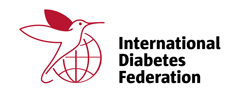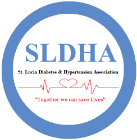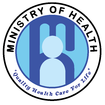 As acute stress, intense exercise and other factors can briefly elevate blood pressure even in people whose blood pressure is normal, a diagnosis of hypertension requires several readings showing high blood pressure over time.
As acute stress, intense exercise and other factors can briefly elevate blood pressure even in people whose blood pressure is normal, a diagnosis of hypertension requires several readings showing high blood pressure over time.
Having high blood pressure for a short amount of time is a normal physiological response to many situations. However, a systolic reading of 180 mmHg or higher OR a diastolic reading of 110 mmHG or higher could be a sign of a hypertensive crisis that warrants immediate medical attention.
Anyone who gets such a reading when testing their own blood pressure should wait a couple of minutes and repeat the test. If the reading remains at that level or increases, seek emergency medical treatment (call an ambulance or have someone drive you to the hospital immediately.
Blood pressure does vary throughout the day, lowering during sleep and rising on awakening. It also rises in response to excitement, anxiety and physical activity.
Blood pressure also increases steadily with age as arteries become stiffer and narrower due to plaque build-up. Vascular and heart disease also contribute to rising blood pressure in older adults, and a high systolic reading is a major risk factor for cardiovascular disease in adults over 50 years old.
The disease burden of high blood pressure is a growing problem worldwide, in part because of a rapidly aging population. Other key contributors include lifestyle factors, such as:
- Physical inactivity
- A salt-rich diet associated with processed and fatty foods
- Alcohol and tobacco use.
Certain diseases and medications (as described below) can cause high blood pressure, and there are a number of general risk factors for hypertension, including:

Obesity is a risk factor for high blood pressure and other cardiovascular conditions.
- Age - everyone is at greater risk of high blood pressure as they get older. Prevalence of hypertension is higher in people over 60 years of age
- Race - African-American adults are at higher risk than white or Hispanic American adults
- Size - being overweight or obese is a key risk factor for hypertension
- Sex - males and females have different risk profiles. While lifetime risk is the same for everybody, men are more prone to hypertension at a younger age and women have a higher rate of hypertension at older ages
- Lifestyle - greater intake of dietary salt, excessive alcohol, low dietary potassium, and physical inactivity all contribute to an increased risk of hypertension.
Other risk factors include a family history of the disease, and chronic, poorly managed stress.
Specific causes of hypertension
 High blood pressure that is not caused by another condition or disease is termed primary hypertension (or essential hypertension). This is more common than secondary hypertension, which has an identified cause such as chronic kidney disease.
High blood pressure that is not caused by another condition or disease is termed primary hypertension (or essential hypertension). This is more common than secondary hypertension, which has an identified cause such as chronic kidney disease.
Primary hypertension is unlikely to have a specific cause but is instead usually a result of multiple factors, including blood plasma volume and activity of the renin-angiotensin system, the hormonal regulator of blood volume and pressure. Primary hypertension is also influenced by environmental factors, including lifestyle-related issues as outlined above.
Secondary hypertension has specific causes - that is, it is secondary to another problem. One example, now thought to be one of the most common causes of treatment-resistant hypertension, is primary aldosteronism, a hormone disorder causing an imbalance between potassium and sodium levels, thus leading to high blood pressure.
Primary aldosteronism may account for some 5-15% of cases of hypertension. It is important that physicians determine if the condition is caused by hyperplasia of the adrenal gland(s) or an adrenal gland tumor as treatments differ between the two.
Common reversible causes are excessive intake of alcohol and use of oral contraceptives, which can cause a slight rise in blood pressure; hormone therapy for menopause is also a culprit. Secondary hypertension can also result from:
- Diabetes(both due to kidney problems and nerve damage)
- Kidney disease
- Pheochromocytoma (a cancer)
- Cushing syndrome (which can be caused by use of corticosteroid drugs)
- Congenital adrenal hyperplasia (disorder of the adrenal glands, which secrete the hormone cortisol)
- Hyperthyroidism(overactive thyroid gland).
- Hyperparathyroidism (which affects calcium and phosphorous levels)
- Pregnancy
- Sleep apnea
- Obesity.




